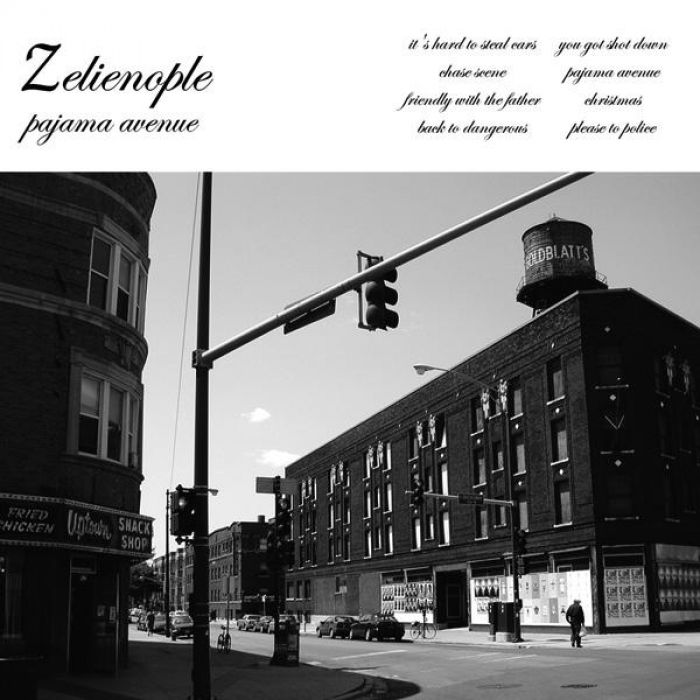Pajama Avenue by Zelienople (Review)

As I read through the press junkets that often accompany the CDs I receive, one of the common threads I’ve discovered is that good music is often borne out of frustration. A couple of people fed up with the current state of their local music scene, or who are tired of making the same old sounds in the same old bands, get together with the hopes of making something new and exciting. And sometimes, they strike gold. Such is the case with the three fellas in Zelienople.
Now I don’t really know too much about Zelienople’s past endeavors, other than the fact that they didn’t bear much fruit (hence this project). However, I trust that Zelienople has turned out to be a much more rewarding venture for the trio. At least, that’s the impression I get from this absorbing debut.
“It’s Hard To Steal Cars” immediately lays out all of the album’s elements — Matt Christiansen’s hushed whispers (think Labradford’s Mark Nelson), graceful guitar lines, gentle synths, subtle drumming — with Brian Harding’s clarinet adding a poignant aspect to the lush surroundings. But as you dive deeper into the well of sound, other elements begin to reveal themselves; sparse clatterings, metallic rings, field recordings, and other sonic debris float off in the distance. You can barely make them out, but they’re there, adding an exotic and experimental vibe to Zelienople’s otherwise polished sound.
On “Friendly With The Father,” Christiansen’s hushed vocals are matched stride for stride by a sleepy guitar line as delicate keys and brushed drums float around them. These are obviously the song’s main elements. But in the background, children’s laughter and other assorted sounds expand the track until it occupies your whole listening environment. There are times when I’ve been unable to discern whether or not the seemingly ordinary noises I’m hearing (traffic, creaks, footsteps, etc.) are coming from my world or the one contained in the CD. And frankly, I’d rather not know, lest I ruin and diminish the experience.
As you listen to Pajama Avenue, you’re bound to notice many of the same sounds and effects used between songs. But each combination feels incredibly fresh every time. Despite the fact that common sounds pop up throughout the album, I have yet to find myself bored or disappointed because I knew that particular guitar sound or synth loop was coming up next. More often than not, I’m excited to hear it again, such as the swirling atmospherics of Pajama Avenue that shimmer like light filtering through a stained glass window, or the delicate, Verve-like guitar tones of “Christmas” (think “Man Called Sun” rather than “Bittersweet Symphony”).
There’s a breathtaking quality to these songs, a sort of wonder that only comes when a band is more concerned with aesthetics than academics, with making beautiful music than music that’s interesting from a conceptual view. There’s a sense of freedom to these songs, an excitement that transcends the album’s sedate pace. It’s as if the band is putting their frustrations behind them and rediscovering the joy of making exciting music once again. And that comes through in the listening experience.
Even as I try to decipher Zelienople’s songs, their layered sounds put me in a lull more often than not. Before I know it, the song is over and I’m still no wiser as to how it ticks. And subsequent listens, though just as rewarding, do little to unravel them any further. For now, however, I’m just content to soak it all in.